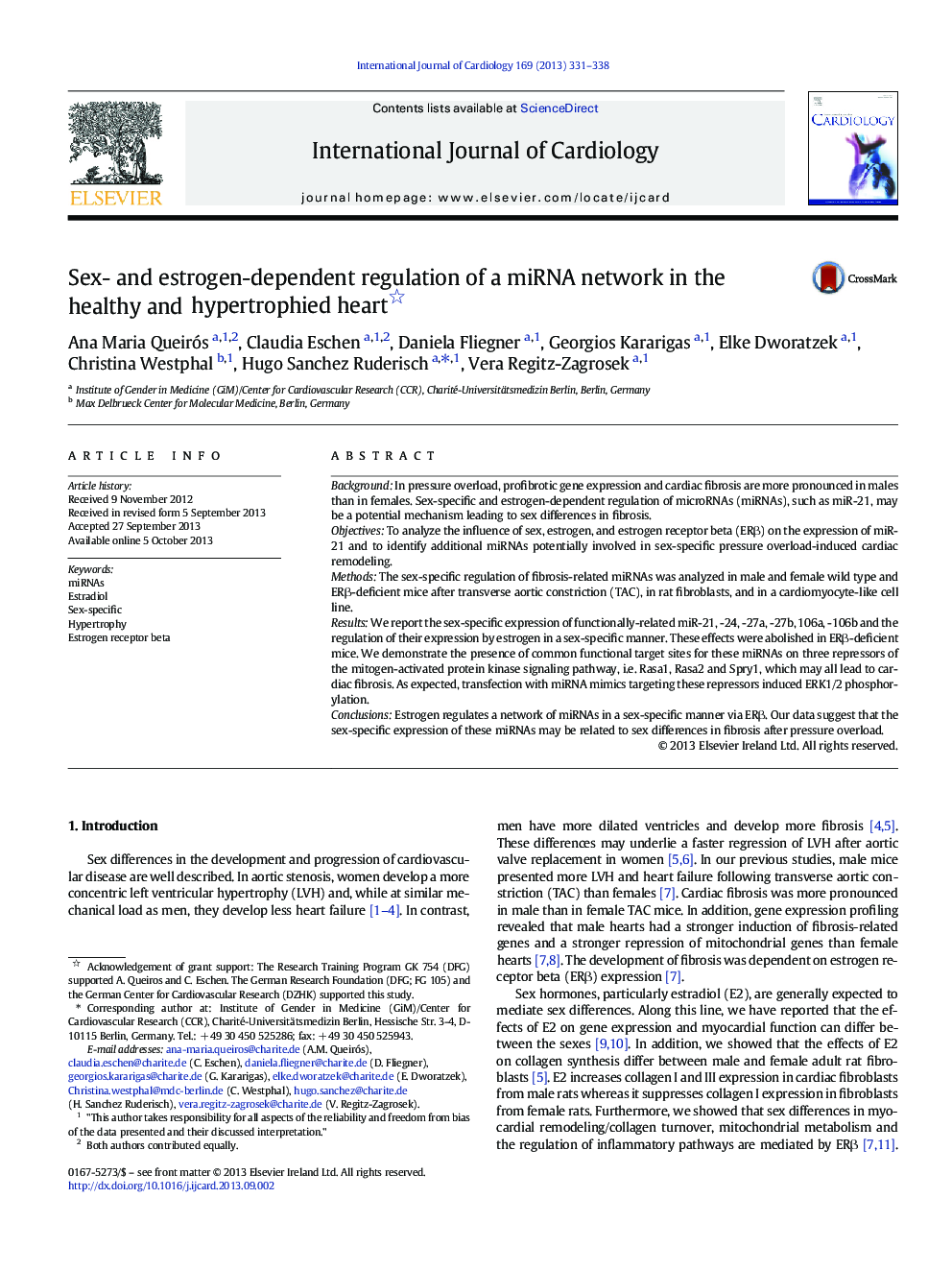| Article ID | Journal | Published Year | Pages | File Type |
|---|---|---|---|---|
| 5973926 | International Journal of Cardiology | 2013 | 8 Pages |
BackgroundIn pressure overload, profibrotic gene expression and cardiac fibrosis are more pronounced in males than in females. Sex-specific and estrogen-dependent regulation of microRNAs (miRNAs), such as miR-21, may be a potential mechanism leading to sex differences in fibrosis.ObjectivesTo analyze the influence of sex, estrogen, and estrogen receptor beta (ERβ) on the expression of miR-21 and to identify additional miRNAs potentially involved in sex-specific pressure overload-induced cardiac remodeling.MethodsThe sex-specific regulation of fibrosis-related miRNAs was analyzed in male and female wild type and ERβ-deficient mice after transverse aortic constriction (TAC), in rat fibroblasts, and in a cardiomyocyte-like cell line.ResultsWe report the sex-specific expression of functionally-related miR-21, -24, -27a, -27b, 106a, -106b and the regulation of their expression by estrogen in a sex-specific manner. These effects were abolished in ERβ-deficient mice. We demonstrate the presence of common functional target sites for these miRNAs on three repressors of the mitogen-activated protein kinase signaling pathway, i.e. Rasa1, Rasa2 and Spry1, which may all lead to cardiac fibrosis. As expected, transfection with miRNA mimics targeting these repressors induced ERK1/2 phosphorylation.ConclusionsEstrogen regulates a network of miRNAs in a sex-specific manner via ERβ. Our data suggest that the sex-specific expression of these miRNAs may be related to sex differences in fibrosis after pressure overload.
